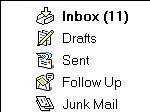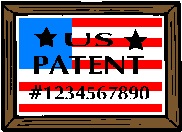Knowing CASL’s exemptions is key to learning how it applies to your business.
Audit, Compliance and Risk Blog
Internet Law: The Ifs, Ands and Buts of New Anti-Spam Legislation
Posted by Nelson Bennett on Fri, Jun 20, 2014
Tags: Corporate Governance, Business & Legal, International, Training, Internet
New Anti-Spam Laws Affect Virtually Every Business in Canada
Posted by Nelson Bennett on Wed, Jun 11, 2014
New anti-spam regulations that go into effect July 1 will do more than prevent spamming within Canada by Canadian businesses. Canada’s Anti-Spam Law (CASL) is a catch-all net that covers all forms of electronic messaging, from email and newsletters to social media and software downloads. Businesses that don’t comply face fines of up to $10 million.
Tags: Corporate Governance, Business & Legal, International, Internet, Canadian
Email Notice and Due Diligence Under the Uniform Commercial Code
Posted by Steve Imparl on Tue, Jan 07, 2014
When a business or person is responsible for providing notice to another business or making that business aware of something, they must follow certain guidelines in conveying the information (e.g., sending it by registered mail on or before the required date), in order to show due diligence. Section 1-202(f) of the Uniform Commercial Code (U.C.C.) defines “due diligence” and “the exercise of due diligence” broadly. The U.C.C.’s requirements for “due diligence” include:
Tags: Corporate Governance, Business & Legal, Employer Best Practices, Internet
Employers in the United States must verify that new hires are eligible to work in the U.S. This responsibility was created by the Immigration Reform and Control Act (IRCA) of 1986, which drafted employers—on pain of being prosecuted themselves—into partnership with the federal government to deny job opportunities to unauthorized workers. Employers' compliance responsibilities are based on use of the I-9 Form ("Employment Eligibility Verification") issued by U.S. Citizenship and Immigration Services (USCIS). As information technology develops, USCIS has expanded electronic reporting and data management tools, the most important of which is called E-Verify. Both I-9's and E-Verify continue to evolve, and have received recent revisions.
Tags: Corporate Governance, Business & Legal, Employer Best Practices, Employee Rights, Workplace violence, Internet
Internet Law: FTC Updates Children’s Online Privacy Rule
Posted by Steve Imparl on Fri, Feb 15, 2013
For many years, under the authority of the Children’s Online Privacy Protection Act (COPPA), the Federal Trade Commission has imposed special regulations on websites and online services that are either directed to children under 13 or whose owners or operators have actual knowledge that they are collecting personal information from children under age 13. On December 19, 2012, the FTC announced final, major changes to the COPPA Rule in response to advances in technology and internet use that have occurred since the COPPA Rule was first enacted.
Employment Law: NLRB Revisits Work-Related Social Media Postings
Posted by Jon Elliott on Wed, Jan 09, 2013
Do you ever discuss work with co-worker friends on Facebook or other social media sites? Or, if you’re an employer, do you worry about what your employees may post about work on their Facebook pages—even when they do so from home after hours?
Tags: Business & Legal, Employer Best Practices, Employee Rights, Internet, NLRB
Intellectual Property Management: 3 Ways To Profit From Your Patent
Posted by Brett Trout on Wed, Dec 19, 2012
In1964 Robert Kearns invented the intermittent windshield wiper. But it would be 26 years and take more than a decade of litigation before he reaped the rewards of his invention. Payday for Kearns finally arrived in 1990 when Ford Motor paid him more than $10 million to settle the patent infringement lawsuit he brought against the company. Recalling Kearns’s story, which was turned into the 2008 feature film Flash of Genius, seems an appropriate lead-in for today’s blog on how to make money from your patent.
I am not a historian. My recollection of the massacre in Tiananmen Square is colored by teenage self-centeredness and the ramblings of a slightly ridiculous history teacher who I managed to ignore for nine months whilst acing the class. I am not proud of this.
Tags: Corporate Governance, Business & Legal, International, Internet, Intellectual Property
If you can’t say anything nice, don’t say anything at all. Not on Facebook. No, not on Twitter either. Just don't say it. Or, does it depend on context?
It appears that Mr. Anil Vazirani, an independent insurance agent, has “griped” against the sixth largest insurance conglomerate, Aviva USA, and pretty much gotten away with it. See Aviva USA Corp. v. Vazirani, D. Ariz., No. 2:11-cv-00369-JAT, 10/2/12. I am somewhat happy for him. Mr. Vazirani used to sell Aviva life insurance products and, at some point, the relationship was terminated. So, Mr. Vazirani then bought up about 14 domain names incorporating the trademark AVIVA, for example, AVIVAPLCSUCKS.COM and AVIVAUNCOVERED. On these sites, Mr. Vazirani proceeded to “gripe”.
Tags: Business & Legal, Employer Best Practices, Employee Rights, Internet


1.jpg)






